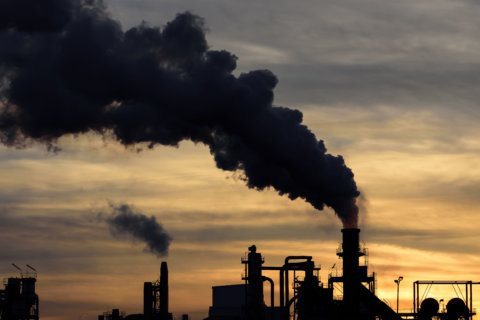Code orange air quality is in the forecast Thursday and Friday for the area, which means the air is considered unhealthy for vulnerable groups. A clean air advocate is urging others to do what they can to help make a difference.
“We all have to take control of this issue,” said David Snyder, chair of the Metropolitan Washington Council of Governments Clean Air Committee. “It’s hard to imagine anything more fundamental than clean air.”
Sensitive groups who are most likely to be impacted by code orange days include children and older adults, people with respiratory and heart ailments, and people who are active outdoors.
It’s recommended that those groups limit time on “prolonged outdoor exertion,” according to the U.S. Environmental Protection Agency.
During the hot summer months of ozone season when there’s the greatest likelihood of unhealthy air days, Snyder said you should do everything you can to keep cars parked.
“Use public transit and every conceivable alternative besides driving,” Snyder said, while also recommending teleworking, carpooling, and bundling routine trips and errands.
Here are some other tips:
- Don’t gas up during daylight hours.
- Don’t use gas-powered lawn mowers.
- Use gas or electric grills vs. charcoal.
- Use eco-friendly yard care products.
- Maintain an energy-efficient home.
“Clean air is something that benefits everyone and we realize, even when we’re healthy, when there’s a deterioration,” Snyder said. “Vulnerable populations, particularly the youngest and the oldest, anyone with respiratory conditions — a deterioration in air can have a major impact on them.”







